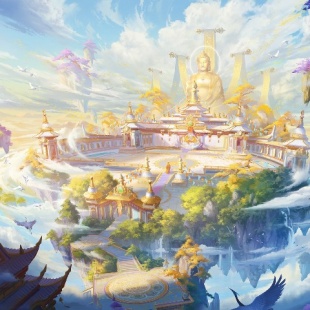Engaging with the past


Imagine you're at home, you open your laptop and start a role-playing game where you can enjoy views of the Nanjing Qinhuai Lantern Festival as you row down the Qinhuai River, completing set tasks along the way. This is one way for video gamers to enjoy the traditional culture of East China's Jiangsu province during Spring Festival without having to travel there.
And that's not all. Perfect World Games, an online gaming company, recently invited a group of heritage experts - including Chen Haitao, a member of the design team from the Dunhuang Academy of China; Zhou Xianguang, an inheritor of Longquan sword intangible cultural heritage; and Xia Juan, a member of the Confucius Temple Cultural and Tourist Group - to join a forum in Beijing discussing new ways to promote traditional Chinese culture through online games.
According to Lu Xiaoyin, the CEO of Perfect World Games, "Game players now are in a different situation as compared to their predecessors a few years ago, because they have an abundance of choices, and will choose games that interest them the most. Games featuring traditional culture have deep connotations and attract a wider audience. So in turn, they should be promoted more."
This year, Perfect World Games worked with Zhou to show traditional Chinese swords in its online mobile game Jade Dynasty. According to Zhou, Longquan swords date back to over 2,500 years ago, when swordsman Ouyezi discovered Longquan, in what is now Zhejiang province, which he found was an ideal place to cast swords.
"The geographical conditions there are ideal thanks to an abundance of ferrite sand and charcoal, and the presence of a fresh water spring, which all contribute to make Longquan a sacred place for casting swords."
Several decades ago, the practice of sword-making in Longquan nearly died out. But with China attaching greater importance to cultural protection and inheritance since 2000, the industry has received support from the government.





































